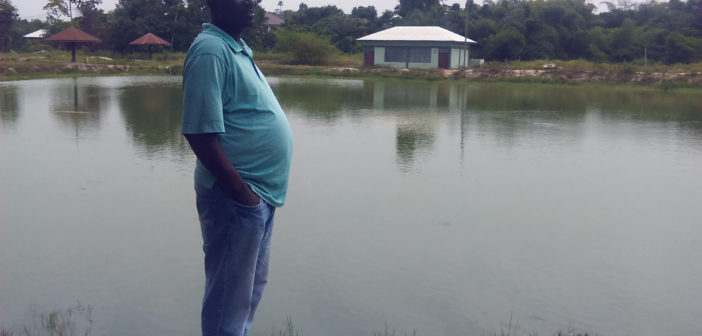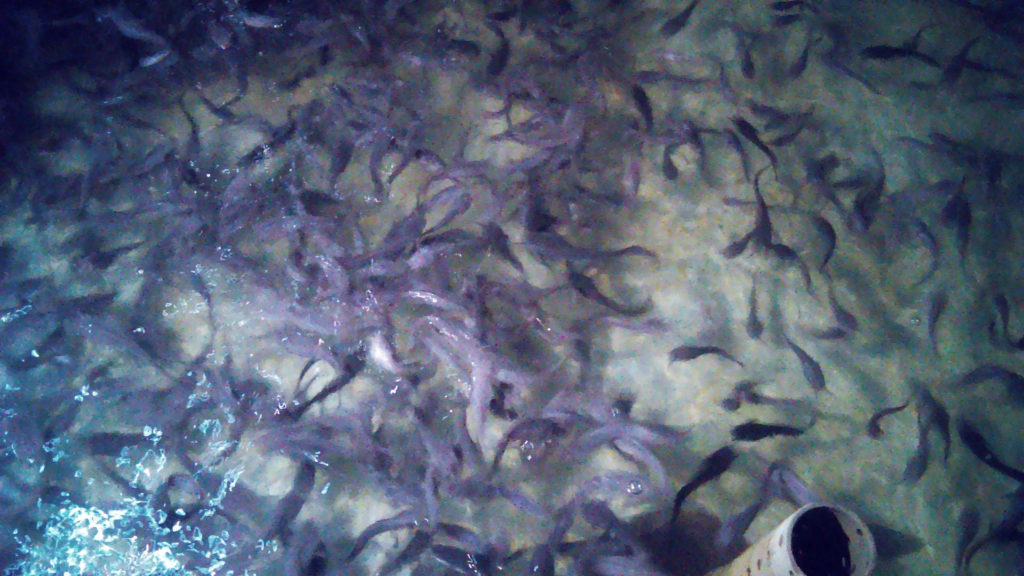 After working at the Kwame Nkrumah University of Science and Technology (KNUST), Nana Kwaku Siaw acquired a farm in Anwomaso, near Domeabra, to engage in aquaculture, which many people do not consider As lucrative.
After working at the Kwame Nkrumah University of Science and Technology (KNUST), Nana Kwaku Siaw acquired a farm in Anwomaso, near Domeabra, to engage in aquaculture, which many people do not consider As lucrative.
In 1998, he decided to move his farm to Domeabra, as he needed more space to expand his business. And gradually, he began the construction of ponds and he developed new activities to have a farm of 10 hectares, employing an average of 15 people.
Despite initial difficulties, the workforce and hard work have been very beneficial. In 1999, Nana Kwaku Siaw was awarded the “Best Aquaculture Producer in the Ashanti Region” and was also awarded the “Gold Trophy in Aquaculture” in 2004 at the First Atlantic Excellence Awards under the auspices of Manhyia Palace.
In an interview with Nana Kwaku Siaw, during a visit to a fish farming community in Ashanti, it is clear that his situation has evolved since her beginnings.
With a commitment and a real desire to continue, the many years of work have allowed it to progress, despite the challenges facing the sector. With steady growth in business, Nana Kwaku Siaw, Managing Director of Kumah Farms, now has 26 ponds where he mainly breeds two species: catfish and tilapia.
It has an hatching site, where the fry are separated before being transported to the magnification ponds. In aquaculture production, there are dams, ponds, canoes and small solvers. “It’s very expensive to put all that together before we can start aquaculture production,” he said.
Although aquaculture is a profitable activity, it requires significant investment. According to him, the cost of feeding fish and fish, as well as the logistics and equipment needed for production, are very expensive and difficult to obtain.
Nana Siaw said that if the government could waive taxes on imports of aquaculture equipment, it would allow fish farmers to significantly improve their production and yield.
He noted that many fish farmers lack equipment like the pH meter, making it possible to measure the pH of the water to determine the level of air in the water.
He wants the government to give more support to those who work in aquaculture, rather than channeling all support to those who engage in capture fisheries.
Despite the difficulties of the sector, it is clear that many Ghanaians are increasingly interested in aquaculture, as marine and freshwater fish stocks decline.
Some experts say that it is because of the impact of climate change, and the depletion of other essential aquatic resources, consequences of human activities.
However, fish remains an important source of protein for many Ghanaians, while being one of the country’s most important non-traditional export products. And its exhaustion will have enormous repercussions.
It was estimated that in 2012 the demand for fish was 968 000 tonnes to meet the country’s consumption of fish. But the annual production for this year was 486,000 tons, which is about 50.2% of the estimated quantity. In 2014, fish consumption was estimated at one million tonnes, more than the 900,000 tonnes consumed in 2013.
However, given the large deficit in fish production in the country, about half of the fish consumed locally is imported, as local fish producers struggle to meet demand.
According to an article by the Business & Financial Times, “in 2015, only 400,000 tons were supplied by the country’s catches at sea and by aquaculture production, the rest being imported at a cost of about 200 million USD per year.”
In addition, the article states that “to reverse the situation, the government should streamline land acquisition processes for aquaculture development, solve electricity problems and block the pricing of illegal rights by various assemblies, Among others “.
It is for these and other reasons that Nana Kwaku Siaw said it is time for the government to focus its attention on aquaculture in the country.

He said that every three months, nearly 5,000 GHS is spent on 1000 tons of fry to produce catfish and tilapia. It calls for a firm guideline to develop and support the local aquaculture industry instead of spending huge sums of money to import fish into the country.
But as some local fish farmers are waiting to see how these governmental support could transform the aquaculture industry, others are still on their way in the hope of making their businesses thrive.





